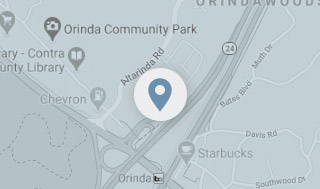
Estate litigation can be an extremely upsetting experience for the parties involved. Not only are there intricate legal issues that must be resolved concerning the estate dispute, but family members interested in the estate can also become quite emotional when a dispute arises.
In situations like these, the experienced and compassionate estate litigation team at Business Estate & Tax Attorneys, P.C., is available and prepared to assist you as you navigate these difficult issues. To set up your confidential consultation with an attorney, call our office today at (925) 317-3467 or visit our contact page.
Common Disputes That Lead to Estate Litigation
Here are a few common disputes that can often lead to estate litigation:
- Contested wills – If a will is not properly drafted, witnessed, and signed, it may not be valid. A will may also be contested if there is a suspicion that undue influence was placed on the deceased at the time the will was written.
- Out-of-date documents – There may be a more recent version of a will, trust, or other estate document that alters provisions in earlier versions of the document. If this happens, it is often asserted that the more recent version supersedes the older one. Litigation may be necessary to sort everything out.
- Mishandling of estate by executor – If the beneficiaries of a will or trust suspect that the executor of an estate has been acting inappropriately, they may sue the executor to recover any funds that may have been allegedly misspent or lost.
- Beneficiaries disputing the terms of a will – If what a parent, spouse, or other family member said about their final wishes is not in harmony with the written terms of the will or with what their beneficiaries thought they were entitled to receive, disputes among beneficiaries may arise.
- Signs of coercion or undue influence – Disputes alleging coercion or undue influence can arise if the deceased was suffering from dementia, Alzheimer’s, or had similar mental capacity challenges prior to their death. Family members, health care workers, and others may take advantage of someone’s diminished mental abilities to influence the terms of the will.
- Disputes surrounding sudden incapacitation – If a family member is suddenly incapacitated and didn’t leave their wishes known via an advance health care directive, living will, or other document, disputes about the intentions and desires of the incapacitated person can arise among family members, leading to litigation.
How Our Firm Can Help Beneficiaries
Among the various ways our firm can help beneficiaries include the following:
- Communicating with a trustee, executor of a will, or their attorney – If you have a question about the assets you’re entitled to or how the assets are being distributed, it can be challenging to communicate your concerns effectively to a trustee, executor of a will, or their legal agent. Having your own legal representative illustrates that you’re taking the issue seriously, and retaining legal counsel can often substantially reduce the time and frustration you will experience when trying to handle the issues on your own.
- Making sure you’re getting your fair share of the assets – Executors and trustees may act negligently or even purposefully to misassign assets to others or misappropriate assets for their own gain. If you suspect that you’re not getting what you’re entitled to under the terms of a will or trust, an attorney can investigate the matter for you and help you determine the best course of action.
- Helping recover misappropriated assets – If assets have been distributed wrongly, you’ll need to act quickly if you want to recover those assets and prevent the trustee or executor from doing any further damage. An estate litigation lawyer can help you determine what assets are missing and file litigation, if necessary, to remove the trustee or executor and to have an appropriate person appointed to handle the estate.
How Our Firm Can Help Executors
It’s not just estate beneficiaries who need legal assistance at times. Executors and trustees may also require assistance from an estate litigation lawyer. Here’s what we can do to help executors and trustees:
- Communication with beneficiaries – If a beneficiary is concerned about the assignment of assets under a will or trust, clear communication, strategically planned by working with your attorney, can minimize the chance of the dispute escalating.
- Protecting executors and the estate – Before any assets can be distributed from an estate, all outstanding taxes and debts must be settled. There are complicated probate and estate rules concerning these issues, including statutory regulations identifying which creditors must be paid off first if the estate has any debts. These creditors must be properly identified and notified. An estate litigation lawyer will help you make sure that these issues are properly handled before any distribution of assets is made.
- Representing executors if a dispute arises – If a beneficiary feels like they’ve been denied their fair share of estate assets or otherwise contests the terms of a will, a lawyer can help you establish that the will is legitimate and that you’ve carried out its terms properly.
What to Expect When There Is a Probate Dispute
Probate matters can be complicated, even when there is no dispute over assets. If a dispute arises, the process can quickly become even more complex and emotional as family members often find themselves at odds with each other and with the decedent’s apparent estate wishes.
Hiring an experienced estate litigation lawyer will help minimize the time, emotional cost, and expense of a lengthy probate court battle, especially if you are the trustee or executor of an estate.
How Attorney Fees Work in Probate Litigation
Attorney fees in probate cases are determined by statute. An attorney receives a percentage of the value of the estate, according to a predetermined formula: 4 percent of the first $100,000 of estate’s value, then 3 percent of the next $100,000, 2 percent of the next $800,000, and 1 percent for values between $1 million and $5 million.
For an estate worth roughly $500,000, the attorney would receive 4 percent of the first $100,000 ($4,000), 3 percent of the next $100,000 ($3,000), and then 2 percent of the remaining $300,000 ($6,000) for a total fee of $13,000.
In unusual cases, the court can order that extraordinary fees be paid to an attorney who has, in the opinion of the judge, rendered extraordinary services to the estate – that is, services that fall outside the routine services provided in a typical probate matter.
The court has discretion to award extraordinary fees and the judge will generally base his/her decision upon several factors including (1) the value of the estate, (2) the difficulty of the extraordinary tasks performed and the time spent on those tasks (3) the results achieved and (4) whether those results benefited the estate.
Under California Probate law, examples of extraordinary services might include selling real property, continuing the decedent’s business or preparing tax returns or handling tax-related government audits or other related litigation. Among the common fact situations that might influence a grant of extraordinary fees are the defense of a will contested after its admission to probate or unusual and extensive efforts taken by legal counsel to locate estate assets. You can check our tax calculator for further information.
In situations where an attorney is hired to handle a legal matter such as a disputed will or executor misconduct, the attorney and client may also agree to an hourly rate charge for services rendered.
Talk to Our California Estate Litigation Attorney Now
To set up your initial consultation with our estate litigation attorney at Business Estate & Tax Attorneys, P.C., call us today at (925) 317-3467 or visit our contact page.


